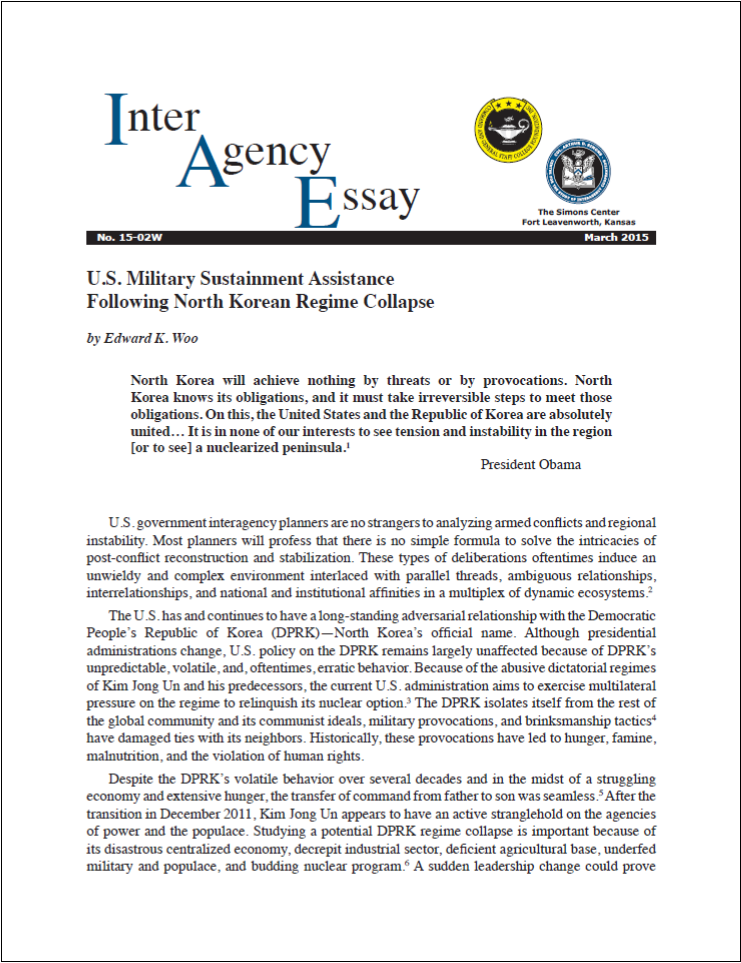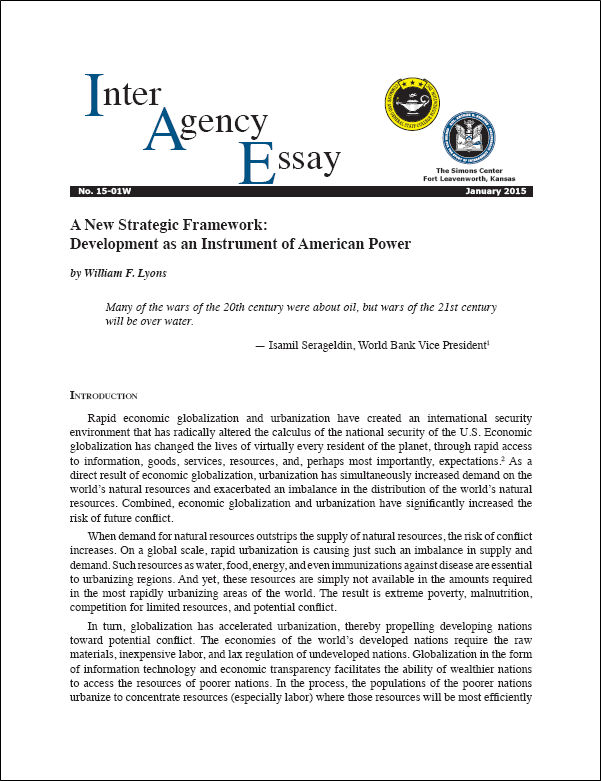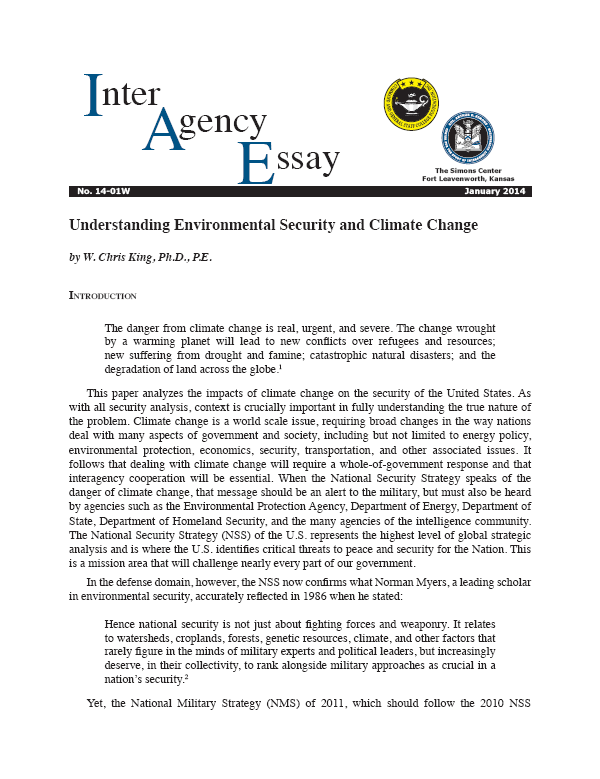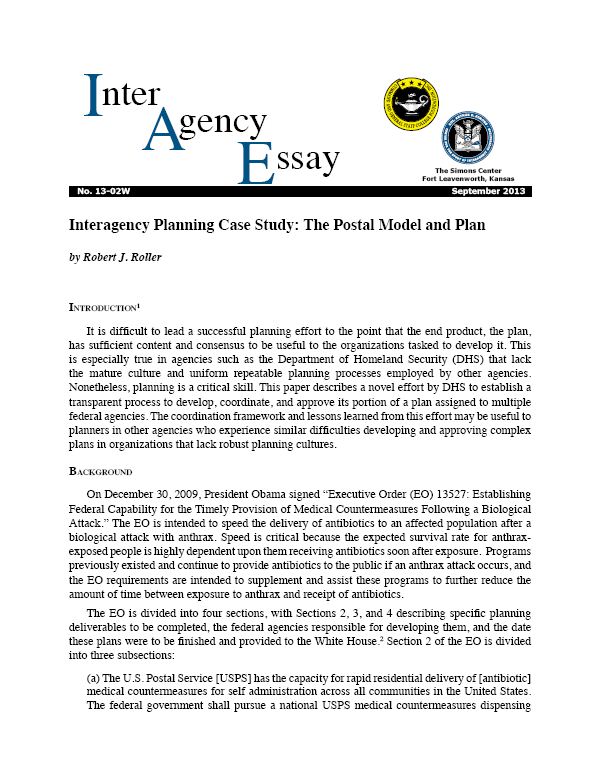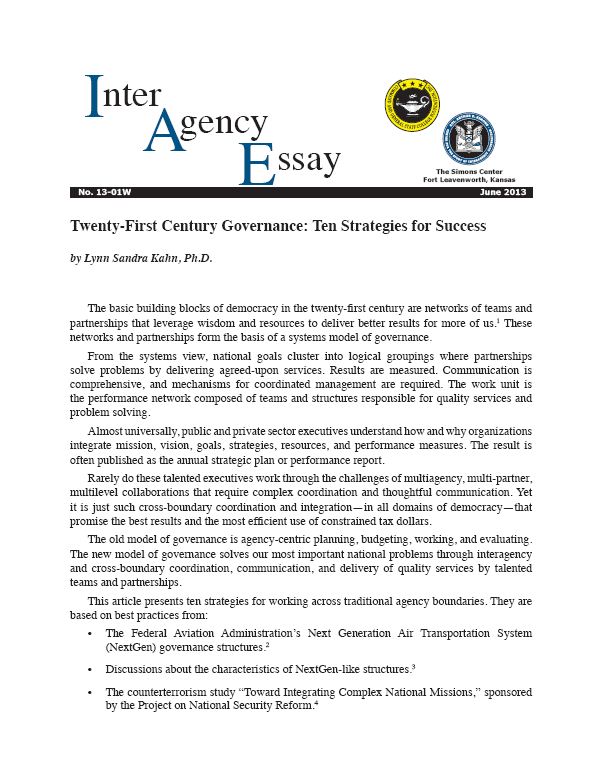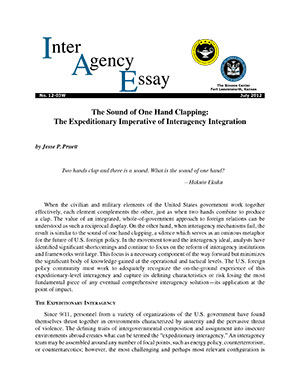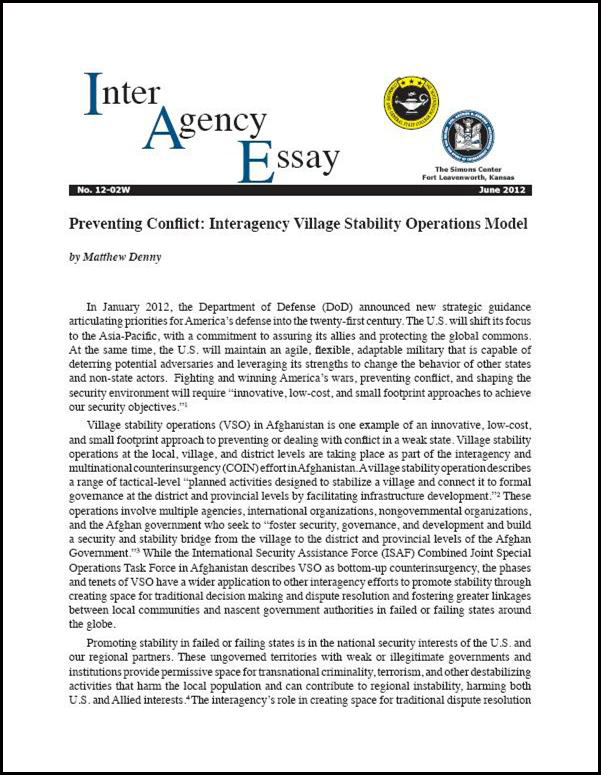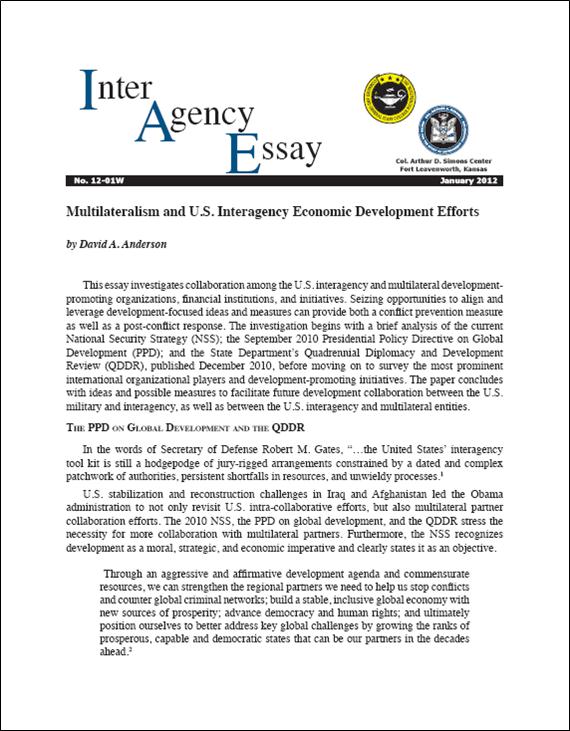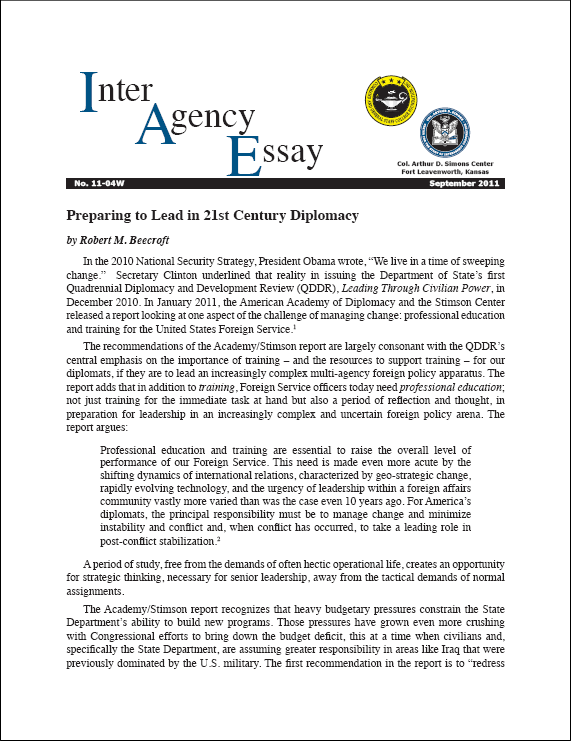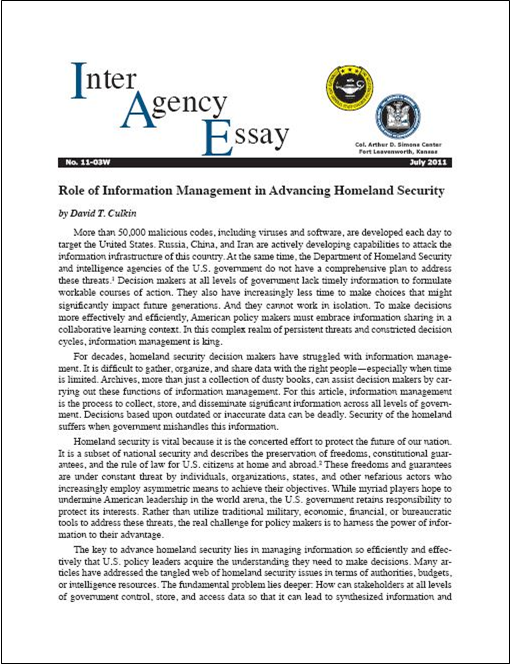Publications Category: Interagency Essays
This content is exclusive to Simons Center Fellows. Don’t have an account? Become a Simons Center Fellow to access all available publications. Visit the “My Account” page to login or reset your password.
... Read MoreThis essay explores the four traditional instruments of national power – diplomatic, economic, informational, and military, or DIME – and proposes that development be included as an instrument of national power…
... Read MoreThis essay analyzes the impacts of climate change on the security of the United States, and helps military, defense, and other national security professionals understand environmental security issues by explaining how environmental issues become national security issues…
... Read MoreThis essay describes the process undertaken by the Department of Homeland Security and other agencies when developing and coordinating their portion of a plan to speed the delivery of antibiotics after a biological attack with anthrax…
... Read MoreThis essay presents ten strategies for working across traditional agency boundaries…
... Read MoreThis essay discusses the need for U.S. government agencies to develop a ground-level understanding and execution in its expeditionary interagency professionals in order to synchronize broader institutional reforms. The author posits that the teams that have defined the expeditionary interagency since 9/11…
... Read MoreThis essay explores village stability operations (VSO) in Afghanistan as an “innovative, low-cost, and small footprint” method of achieving U.S. security objectives…
... Read Moreby David A. Anderson
This essay investigates collaboration among the U.S. interagency and multilateral development-promoting organizations, financial institutions, and initiatives. U.S. interagency collaboration and information sharing must take place among all U.S. agencies that assist in economic development…
... Read Moreby Robert M. Beecroft
Ambassador Beecroft reviews the State Department’s 2010 Quadrennial Diplomacy and Development Review (QDDR) and a 2011 report by the American Academy of Diplomacy and the Stimson Center, both reports stress the importance of professional education and training for the United States Foreign Service, and state that professional education and training are essential to the overall performance of the U.S. Foreign Service if it is to lead an increasingly multi-agency foreign policy apparatus…
... Read Moreby David T. Culkin
In an era of persistent threats to the homeland and constricted decision cycles, American policy makers must embrace information sharing if they are to protect the citizens and infrastructure of the United States. The key to advancing homeland security lies in managing information so efficiently and effectively that U.S. policy leaders rapidly acquire the understanding they need to make decisions…
... Read More"*" indicates required fields
